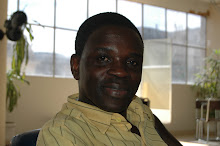As history always tells us: everyone knows that the hazardous discovery of the new world by the Europeans, the extermination of the indigenous, the maladjustment of the white man to the tropical weather, and the intervention of the catholic church were the origin of the African slavery: the Portuguese had been the first to supply the Spanish colonies in the America with African slaves, but within a few decades, many other Europeans, such as: Swedish, Danish, French, and Dutch had all entered the trade. Of course, the British were the principal slave traders.
With the achievement of the World Conference against Racism, Racial Discrimination, Xenophobia and correlated forms of Intolerance, organized by the United Nations, in Durban, South Africa, in 2001, a new subject matter has gained space between the Black population militancy, REPARATIONS.
In this conference plenary a resolution has been attained to consider as crimes against humanity the colonialism to which the African have been submitted by the Europeans, the Trans-oceanic human beings traffic from Africa to be reduced to slavery work in the European and American continents, and the human slavery for the African agricultural production, and in the Americas and the Caribbean area. In considering those three historical facts, as crimes. The resolution was that the African descendants and in the African Diaspora of those that have suffered those crimes should be repaired. Thus, Reparations have been transformed into another Black People fight instrument in its deliverance process.
The remote towns of the country, for example, some Quilombola communities in the state of Rio de Janeiro are fully concerned about the process of the Negro National Congress for Reparations. The delegates from these communities have quickly come to symbolize the strong support to the Commission. “We fully believe it can be done sooner or later,” Yedo Ferreira, professor of history.
Black People Congress subject matter has been overlooked for twelve years, having reappeared in 2002, on the occasion of the World Social Forum − WSF, more specifically at the Black People Entity National Plenary Assembly aiming to evaluate the same at the World Social Forum, held in the same year, in Porto Alegre – Rio Grande do Sul.
“Looking at our different communities, it seems we are still living in the time of high apartheid period: at school; at work, and so on. We have to put an end to this horrible situation. I mean, enough is enough. I am completely against certain kinds of gatherings where people instead of forming one strong block, spend or waste their time fight among one another, and everyone wants to become the leader. And more, some people forget that our problems have to be solved right now, that’s why we need the Action Affirmative, because they are the immediate solutions of our problems. In my opinion, Reparations are a kind of Utopia. Yes, let´s keep on shaking the authorities locally or internationally,” comments Solange da Conceição, professor of history.
Pressure also could come from the different Non Governmental organizations which are always consulting the lawsuit line. “This is the line we should take. I mean, the lawsuit, in our country and also around the world so that the black populations can get their own identities and becoming stronger for demanding immediate satisfaction through the Affirmative Actions, instead of wasting time gathering or struggling for Reparations. We, black people around the world must create projects which promote the identification of common, cultural roots through the exchange with the African people. Reparations; at the same time organizing seminars, workshops, as we’re doing in Brazil now, for the sake of the congress,” declares Adilson Luziária, the chairman of Criaex – Center of Reintegration for the Outcast Children, and Adolescents.
In fact, the congress is a political project in potential, it is not therefore, an academic symposium but a meeting of an open activity likewise the Negro Brazilians Activity) with objective of implementing theoretical questions and separate political questions, in addition outlining strategies and tactics so that the Negro Brazilian can overcome existing contradictions in the Black people environment and resolve deadlocks as an option to a political open discussion for Historical Reparations and Affirmative Actions. The congress is due to be held in May 2009.
.

No comments:
Post a Comment